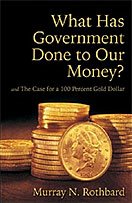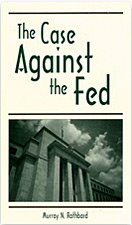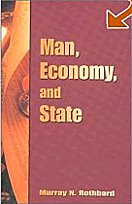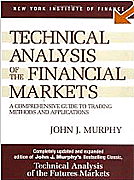IMF should mandate total central bank gold loan disclosure
IMF should mandate total central bank gold loan disclosure
 Dorothy Kosich
Dorothy Kosich
'15-DEC-06 08:00'
RENO, NV (Mineweb.com) --A study by New Orleans coin and bullion dealer Blanchard & Co. criticizes the secrecy of central bank gold lending, calling on the International Monetary Fund to mandate that central banks make complete and frequent disclosure of gold lending.
Blanchard Vice President and Director of Economic Research Neal R. Ryan asserted that if more transparent governance is implemented in the market, “gold prices will experience exponential growth because they will become a reflection of a fair and equitable market for all participants.”
“The IMF has essentially stated that they believe that the market should receive correct accounting on loan information. The final test will be the implementation of the new accounting rules,” Ryan said.
In their study, Blanchard and Company declared it “believes it is imperative that central banks follow IMF suggestions and implement line item accounting for their gold reserves activity on a quarterly basis, if not monthly basis and do so immediately.” If implemented by IMF, proposed changes to the standards of accounting currently in place for gold loans would take place “possibly” by year-end 2008, according to Blanchard.
Ryan said the IMF accounting changes would “level the playing field for all market participants, bring an end to proprietary information within the market for an exclusive few, and allow the bullion market to function in a fair and equitable manner, ridding itself of conspiracy theories that diminish its relevance and stability.”
The World Gold Council estimates that there are more than 4.82 billion ounces of gold in existence. Of this, roughly 970 million ounces are held by central banks, which are the largest holders of gold bullion, comprising 18% of available stock.
Central banks have their purchases and sales of gold tallied by the IMF International Reserves and Foreign Currency Liquidity Statistics Department, and are updated every three months by the World Gold Council. “While central banks report sales and purchases to the IMF, they do not report their levels of holdings on loan,” according to Ryan. Quoting a 2002 GFMS Gold Survey, which noted that “only a handful of central banks have ever published gold lending statistics,” Blanchard’s study asked: “How can we rely on a set of data with no underlying backup material supporting that data?”
Meanwhile, Ryan contends that while “gold swaps between banks have just as large an impact on the market as gold loans, and even less is known about them in the marketplace.” Yet, he asserted that “no one has a 100 percent accurate count on levels of loaned gold in the market.” Ryan claimed that “there is more loaned gold estimated to be in the market throughout the year that comes from annual mine production, investment demand, or jewelry demand, yet the market does not reflect its impact because it is not accurately or completely reported.”
Bullion banks are the conduits for central bank gold loaned into the market. Currently there are only six clearing banks in the London Bullion Market Association (LBMA) which handle gold loan transactions including Barclays Bank, ScotiaMocatta, Deutsche Bank, HSBC Bank, JPMorgan Chase Bank and UBS AG.
In their report, Blanchard highlighted an IMF position paper by Hidetoski Takeda, which advocated that swapped and loaned gold be excluded from central bank reserve reports. He recommended that a new IMF manual should include a clearer description of the treatments of gold swaps and gold deposits/loans. The position paper also suggested that only deposited/loaned gold available upon demand to monetary authorities should be included in reserve assets as monetary gold.
An IMF Committee on Reserve Assets agreed with Takeda’s position that a clearer description of the treatment of gold swaps and loans is needed. They also agreed that if the unallocated gold is not available upon demand, “it should be removed from reserve assets.”
Takeda subsequently wrote a follow-up paper advocating that, to determine appropriate treatment of gold swaps with unallocated gold, “practices of market and accounting of banks on gold swaps need to be taken into consideration.”
Blanchard suggests that by “ending opaque transactions and accounting procedures, the gold market then becomes accessible to all participants and ends the ‘clubhouse’ attitude that governs the London Exchange.”
“The gold market has made great advances in the past few years, not only in terms of price increases, but also in the availability of gold to purchase for all market participants and the transparency of information,” according to Ryan. “It is time to continue those advances and make the last few steps to having a truly open and free marketplace for all those involved.”
“The market as a whole will become more transparent and accessible if loan information is publicized, so it’s hard to argue that any market participant would be hurt by this information entering the public domain,” Ryan asserted.
“If the IMF does not require [reserve reporting accounting] change or central banks and bullion banks fight potential accounting treatment changes, then additional questions should be raised as to why they would delay additional transparency in the gold market,” Ryan concluded.
In a news release, the Gold Anti-Trust Action Committee (GATA) Thursday praised the Blanchard study, but expressed skepticism of the IMF’s sincerity. Nevertheless, GATA Secretary/Treasurer Chris Powell said “there’s no harm in pressing the gold lending and transparency issues with official agencies and new organizations, only good. Indeed, this is crucial. There is always the chance, however remote, that the IMF will try to come clean and drag the central banks along with it.”
 Dorothy Kosich
Dorothy Kosich'15-DEC-06 08:00'
RENO, NV (Mineweb.com) --A study by New Orleans coin and bullion dealer Blanchard & Co. criticizes the secrecy of central bank gold lending, calling on the International Monetary Fund to mandate that central banks make complete and frequent disclosure of gold lending.
Blanchard Vice President and Director of Economic Research Neal R. Ryan asserted that if more transparent governance is implemented in the market, “gold prices will experience exponential growth because they will become a reflection of a fair and equitable market for all participants.”
“The IMF has essentially stated that they believe that the market should receive correct accounting on loan information. The final test will be the implementation of the new accounting rules,” Ryan said.
In their study, Blanchard and Company declared it “believes it is imperative that central banks follow IMF suggestions and implement line item accounting for their gold reserves activity on a quarterly basis, if not monthly basis and do so immediately.” If implemented by IMF, proposed changes to the standards of accounting currently in place for gold loans would take place “possibly” by year-end 2008, according to Blanchard.
Ryan said the IMF accounting changes would “level the playing field for all market participants, bring an end to proprietary information within the market for an exclusive few, and allow the bullion market to function in a fair and equitable manner, ridding itself of conspiracy theories that diminish its relevance and stability.”
The World Gold Council estimates that there are more than 4.82 billion ounces of gold in existence. Of this, roughly 970 million ounces are held by central banks, which are the largest holders of gold bullion, comprising 18% of available stock.
Central banks have their purchases and sales of gold tallied by the IMF International Reserves and Foreign Currency Liquidity Statistics Department, and are updated every three months by the World Gold Council. “While central banks report sales and purchases to the IMF, they do not report their levels of holdings on loan,” according to Ryan. Quoting a 2002 GFMS Gold Survey, which noted that “only a handful of central banks have ever published gold lending statistics,” Blanchard’s study asked: “How can we rely on a set of data with no underlying backup material supporting that data?”
Meanwhile, Ryan contends that while “gold swaps between banks have just as large an impact on the market as gold loans, and even less is known about them in the marketplace.” Yet, he asserted that “no one has a 100 percent accurate count on levels of loaned gold in the market.” Ryan claimed that “there is more loaned gold estimated to be in the market throughout the year that comes from annual mine production, investment demand, or jewelry demand, yet the market does not reflect its impact because it is not accurately or completely reported.”
Bullion banks are the conduits for central bank gold loaned into the market. Currently there are only six clearing banks in the London Bullion Market Association (LBMA) which handle gold loan transactions including Barclays Bank, ScotiaMocatta, Deutsche Bank, HSBC Bank, JPMorgan Chase Bank and UBS AG.
In their report, Blanchard highlighted an IMF position paper by Hidetoski Takeda, which advocated that swapped and loaned gold be excluded from central bank reserve reports. He recommended that a new IMF manual should include a clearer description of the treatments of gold swaps and gold deposits/loans. The position paper also suggested that only deposited/loaned gold available upon demand to monetary authorities should be included in reserve assets as monetary gold.
An IMF Committee on Reserve Assets agreed with Takeda’s position that a clearer description of the treatment of gold swaps and loans is needed. They also agreed that if the unallocated gold is not available upon demand, “it should be removed from reserve assets.”
Takeda subsequently wrote a follow-up paper advocating that, to determine appropriate treatment of gold swaps with unallocated gold, “practices of market and accounting of banks on gold swaps need to be taken into consideration.”
Blanchard suggests that by “ending opaque transactions and accounting procedures, the gold market then becomes accessible to all participants and ends the ‘clubhouse’ attitude that governs the London Exchange.”
“The gold market has made great advances in the past few years, not only in terms of price increases, but also in the availability of gold to purchase for all market participants and the transparency of information,” according to Ryan. “It is time to continue those advances and make the last few steps to having a truly open and free marketplace for all those involved.”
“The market as a whole will become more transparent and accessible if loan information is publicized, so it’s hard to argue that any market participant would be hurt by this information entering the public domain,” Ryan asserted.
“If the IMF does not require [reserve reporting accounting] change or central banks and bullion banks fight potential accounting treatment changes, then additional questions should be raised as to why they would delay additional transparency in the gold market,” Ryan concluded.
In a news release, the Gold Anti-Trust Action Committee (GATA) Thursday praised the Blanchard study, but expressed skepticism of the IMF’s sincerity. Nevertheless, GATA Secretary/Treasurer Chris Powell said “there’s no harm in pressing the gold lending and transparency issues with official agencies and new organizations, only good. Indeed, this is crucial. There is always the chance, however remote, that the IMF will try to come clean and drag the central banks along with it.”
Labels: gold, market manipulation















![[Most Recent Quotes from www.kitco.com] [Most Recent Quotes from www.kitco.com]](http://www.kitco.com/images/live/t24_au_en_usoz_6.gif)
![[Most Recent Quotes from www.kitco.com] [Most Recent Quotes from www.kitco.com]](http://www.kitco.com/images/live/au_go_0030_ny.gif)
![[Most Recent Quotes from www.kitco.com] [Most Recent Quotes from www.kitco.com]](http://www.kitco.com/images/live/au_go_0365_ny.gif)
![[Most Recent Quotes from www.kitco.com] [Most Recent Quotes from www.kitco.com]](http://kitconet.com/charts/metals/silver/t24_ag_en_usoz_4.gif)

















0 ΣΧΟΛΙΑ (COMMENTS):
Post a Comment
<< Home